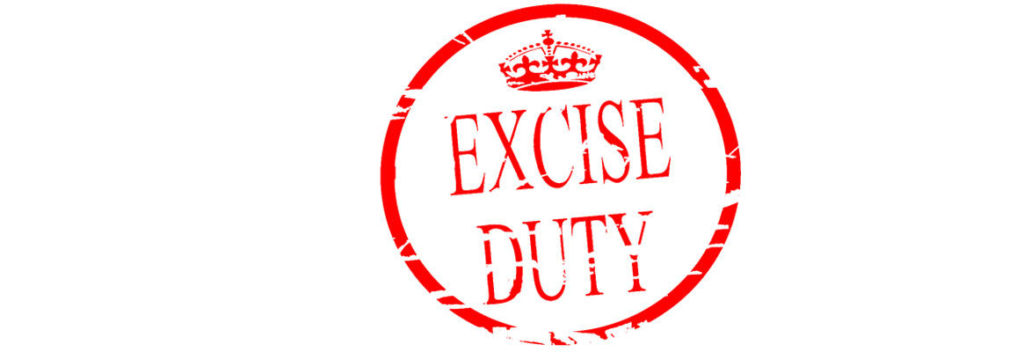From the 1st of October 2021 the prices of not less than 31 goods in Kenya, will be increased significantly. These goods include Bottled water, Beer, Juice, and Fuel.
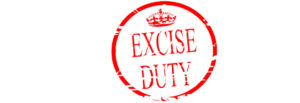
This increase will occur because the Kenya Revenue Authority (KRA) will be implementing the annual inflation tax adjustment on the excise duty charged on said products.
On Tuesday the 10th of August 2021, the Kenya Revenue Authority (KRA) made it known that the excise duty imposed on the products, will increase by 4.97 percent in line with the average annual inflation.
What this means is that a majority of the manufacturers will transfer the extra cost incurred for the commodities to the consumers. A move which is expected to result in another public outcry over the increase in cost of living.
A large number of the households in Kenya have still not recovered from the negative economic effects of the Coronavirus pandemic which also led to widespread paycuts, business closures, and layoffs.
Consumers will from the 1st of October 2021 begin to pay 0.566 Kenyan Shillings more for every litre of Kerosene and every litre of Diesel. For Petrol consumers will pay 1.09 Kenyan Shillings per litre which will push the excise duty for the commodity to 23.04 Kenyan Shillings. For consumers of Beer, they will now pay 5.77 Kenyan Shillings per litre. The prices of Spirits will increase to as high as 13.20 Kenyan Shillings per litre as well.

The Kenya Revenue Authority (KRA) made it known via a notice on the 10th of August 2021 that, “The Commissioner-General adjusts for inflation the specific rates of duty set out in the Schedule hereto in accordance with the formula specified in Part 1 of the First Schedule to the Act with effect from the October 1, 2021.”
The adjustment will be in line with the law which instructs that excise duty must be revised upwards in correlation of course, with the measure of the cost of living or the average rate of inflation in the 12 months up until June.
The Kenya Revenue Authority (KRA) will however for the first time, be mandated to seek approval from the Kenyan Parliament before implementing the new rates. This is as a result of the changes that were made to said law. The changes in question were implemented in 2020.
The industry’s lobby which is the Kenya Association of Manufacturers (KAM) has frequently appealed to the Kenya Revenue Authority (KRA) to put the implementations the yearly inflation adjustment tax which impacts goods that have excise duties on hold due to the economic difficulties brought on by the still ongoing Coronavirus pandemic.
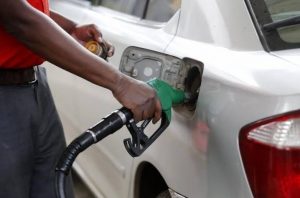
The increase in fuel tax is coming at a time when the Kenyan Government has put subsidies in place which are aimed at easing up the pressure at local pumps brought on by the increasing crude prices.
The subsidies have been able to effectively place the cost of one litre of Petrol at 127.14 Kenyan Shillings in the Kenyan capital of Nairobi. This is quite better than the increase to 130.71 Kenyan Shillings per litre that would have been the case had the subsidy not been implemented. The price of 130.71 Kenyan Shillings per litre would have been the highest in the nation’s history.
Some other goods which will be impacted by the increased taxation are Motorcycles (more popularly referred to as Boda Boda), Bottled Water, and of course Cigarettes.
The cost of one stick of Cigarette will go up by 0.16 Kenyan Shillings in correlation with the increase in its excise duty from 3.31 Kenyan Shillings to 3.47 Kenyan Shillings. The excise duty on Bottled Water will as well increase from 3.31 Kenyan Shillings per litre to 3.47 Kenyan Shillings per litre.

For Motorcycles (Boda Boda) the excise duty will be increased from 11,608 Kenyan Shillings to 12,185 Kenyan Shillings. Keep in mind however, that this will not affect all motorcycles, bikes and ambulances which have been assembled locally.
Before 2018 the good which are affected only had fixed excise duty rates. According to Business Daily Africa the fresh inflation adjustment is been perceived as a way for the Kenyan Government to protect its spending power and prevent it from being impacted by the increase in the cost of living.
The Kenyan Parliament is expected to either approve the inflation adjustment, or reject said inflation adjustment within 28 sitting days of receiving the notice.
In the previous law the Commissioner-General of the Kenya Revenue Authority (KRA) was only required to tender out a legal notice stating the adjustment for the new tax rates to be implemented in October of every year.
In June of 2021 the Kenyan Parliament rejected a bid to change the law and essentially stop the yearly review of the product prices permanently.
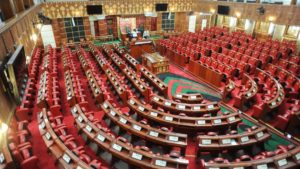
The Members of Parliament overruled the move to only have the Kenya Revenue Authority (KRA) review the prices every two (2) or three (3) years in an attempt to protect the numerous companies and consumers from the increases in costs of products.
Popular beverage company; Coca-Cola had in the past issued a petition for the Kenyan Parliament to execute the review in correlation with the average yearly inflation which is to be carried out every three (3) years.
East Africa Breweries Limited (EABL) is also documented as having lobbied lawmakers with regards to having the review of prices done every two (2) years. Its attempt however, turned out to be unsuccessful
The move to change the law, has also been rejected by the National Assembly Committee on Finance and National Planning. It countered that several checks were implemented in 2020 in order to make sure that the price review puts into consideration other economic factors or indicators beyond just inflation.
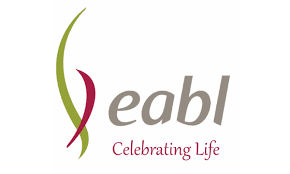
Companies like East Africa Breweries Limited (EABL) have in response to the inflation adjusted tax, resorted to increasing their Beer prices by 10 Kenyan Shillings per bottle.
In 2020 the Kenya Revenue Authority (KRA) raised the costs of the products by not less than 5.43 percent in a move which dealt significant damage to numerous consumers who had already been affected by widespread unpaid leaves as well as job cuts in the wake of the Coronavirus pandemic.
The changes the Kenya Revenue Authority (KRA) implemented occurred, before the application of the new law which required the approval of the Kenyan Parliament and the National Treasury.
The manufacturers which were affected by the excise duties have publicly contested the yearly inflation adjustment, stating that the move would distort the overall inflation rate, while also resulting in price instability.
How informative was this article? Are there any other news topics, categories, or How To topics, that you would like us to write on? Feel free to reach out to Mpesa Pay in the comment section.

